[ad_1]
Hard boiled eggs are not only a tasty and inexpensive source of protein but also a versatile ingredient that can be enjoyed in various dishes. While many of us have probably eaten hard boiled eggs without knowing much about them, there are several intriguing facts about this picnic and sandwich favorite that are worth discovering. These are 11 surprising facts about hard boiled eggs and the lesser-known aspects of this beloved culinary staple.
Fun Facts About Hard Boiled Eggs
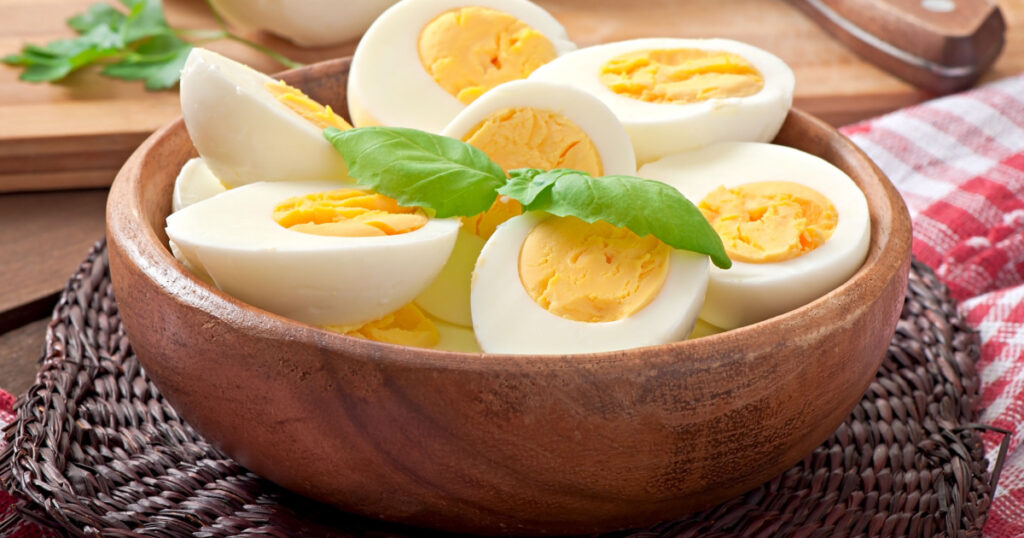
It’s common for us to enjoy hard boiled eggs without considering their origin or uniqueness. However, behind their simple appearance lies a multitude of intriguing facts and hidden qualities. Let’s dive in and explore 11 things you likely didn’t know about hard boiled eggs.
Read More: Are Eggs Bad For Your Heart?
Fact 1: Americans love hard-boiled eggs

In a study conducted by the food blog Pantry & Larder, it was found that hard-boiled eggs are the most popular egg-cooking preparation in America. Interestingly, 30 out of 50 states preferred hard-boiled eggs over other styles, making it a beloved choice across the nation. (1)
Fact 2: Hard-boiled eggs are a quick source of protein
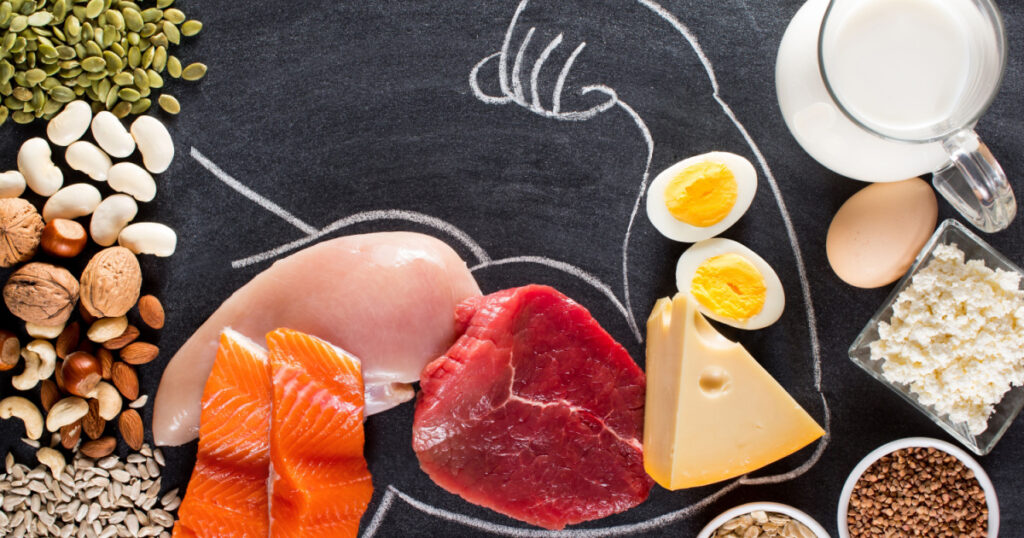
Protein is an essential nutrient for our bodies, and hard-boiled eggs are a convenient and portable source of it. With 6.3 grams of protein per large egg, they provide all nine essential amino acids, making them a complete protein. Whether it’s for a pre or post-workout snack or a protein-rich breakfast on the go, hard-boiled eggs are a satisfying option. (2)
Fact 3: They’re also good for your heart – really!

Contrary to the belief that eggs negatively impact heart health, a 2018 study revealed that regular egg consumption is linked to a lower risk of heart disease. Eggs contain beneficial proteins that increase “good” cholesterol levels and reduce markers associated with heart disease. So, enjoy your hard-boiled eggs without worrying about your heart. (3)
Fact 4: Boiled eggs may even have less cholesterol than other eggs
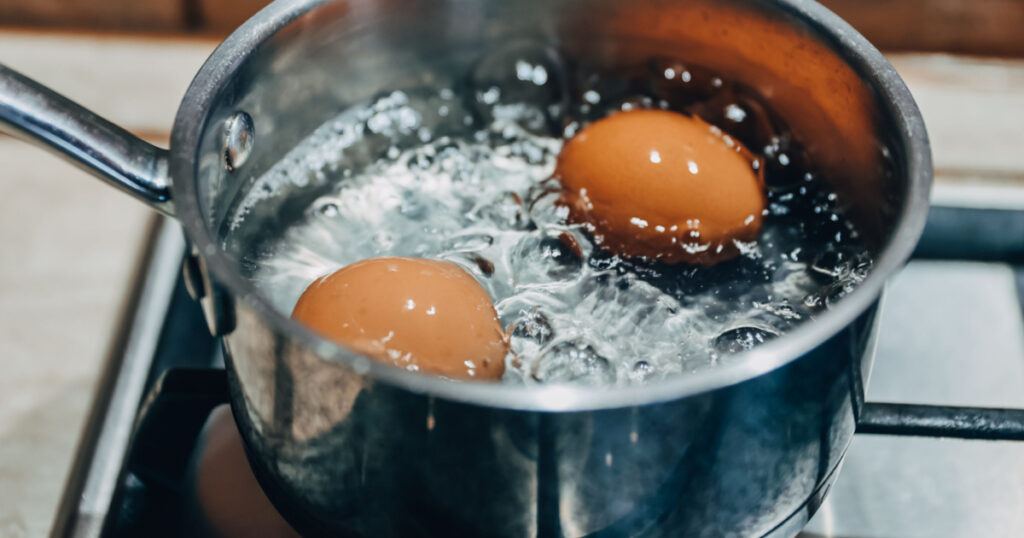
The way eggs are cooked can impact their nutritional profiles. High-temperature cooking methods like frying can lead to more oxidized cholesterol, while boiling eggs at a lower temperature may have less impact on cholesterol levels. As a result, hard-boiled eggs may be even more beneficial for heart health than other cooking methods.
Read More: The Benefits of Eating Eggs (Even Everyday)
Fact 5: There are tons of hacks for how to peel hard-boiled eggs
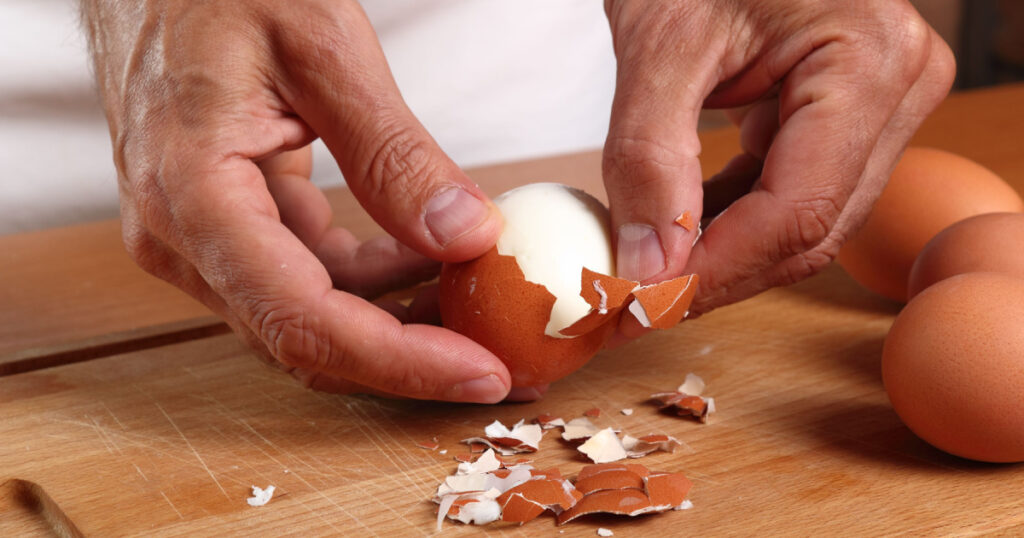
Love hard boiled eggs but hate the peeling process? There are numerous hacks and techniques to make the process easier. From cracking and peeling underwater to using various gadgets and tools, explore different methods to achieve a perfectly peeled hard-boiled egg.
Fact 6: How hard they are to peel may be an indicator of freshness
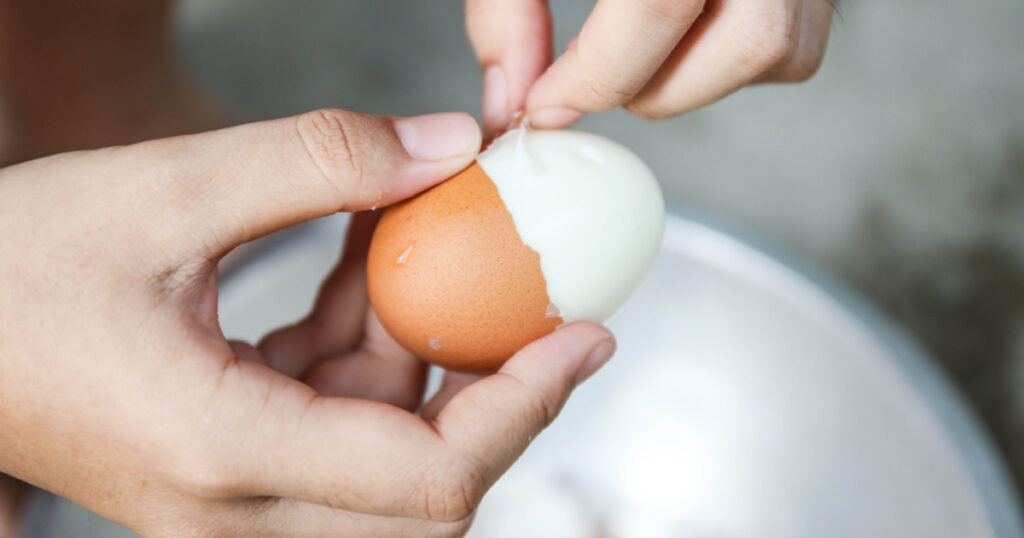
Fresh eggs are known to be more difficult to peel, as fresher egg whites tend to stick to the membrane on the inner shell. As eggs age, the acidity decreases, allowing for easier separation of the egg white from the shell. For an easier peeling experience, let your eggs sit in the refrigerator for a week or two before boiling. (4)
Fact 7: Their shelf-life may not be as long as you think

While fresh raw eggs can typically be consumed within three to five weeks if properly refrigerated, hard-boiled eggs have a shorter shelf life. Unlike their fresh counterparts, hard-boiled eggs are only safe to eat for about a week when stored in the refrigerator.
Fact 8: The tradition of eating hard-boiled eggs goes back centuries
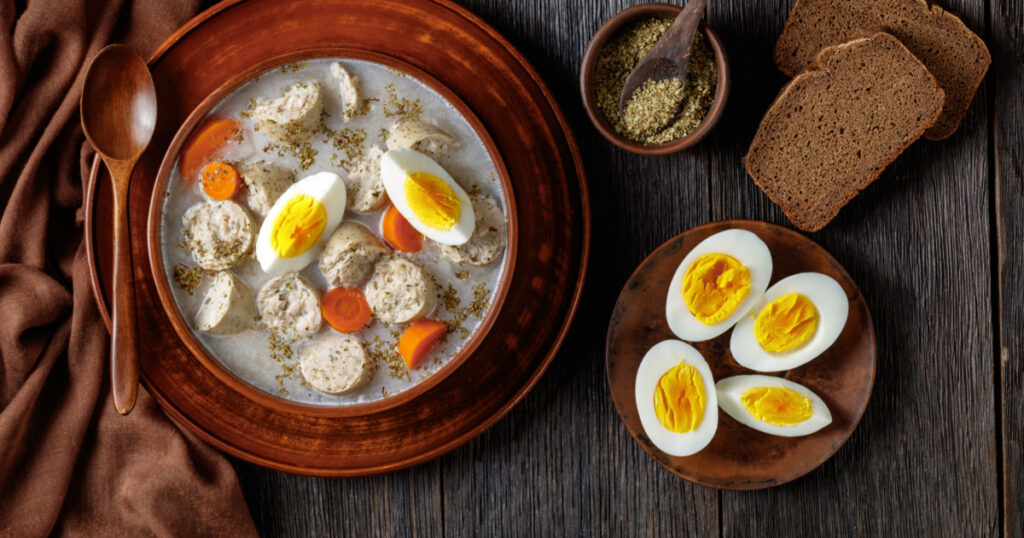
Hard-boiled eggs have been enjoyed for centuries, dating as far back as 5000 BC. They have been a staple in various cultures and cuisines, serving as garnishes, standalone dishes, and ingredients in countless recipes. The longevity of this tradition speaks to the enduring popularity of hard-boiled eggs. (5)
Read More: Death of Teen Attributed to Tapeworm Eggs Found in His Brain from Eating Undercooked Pork
Fact 9: Hard-boiled eggs are versatile in cooking

Hard-boiled eggs are not just delicious on their own; they also play a vital role in many beloved dishes. From classic deviled eggs to Cobb salad and egg salad sandwiches, their versatility shines through as a key ingredient in various recipes.
Fact 10: You can easily make delicious flavored hard-boiled eggs
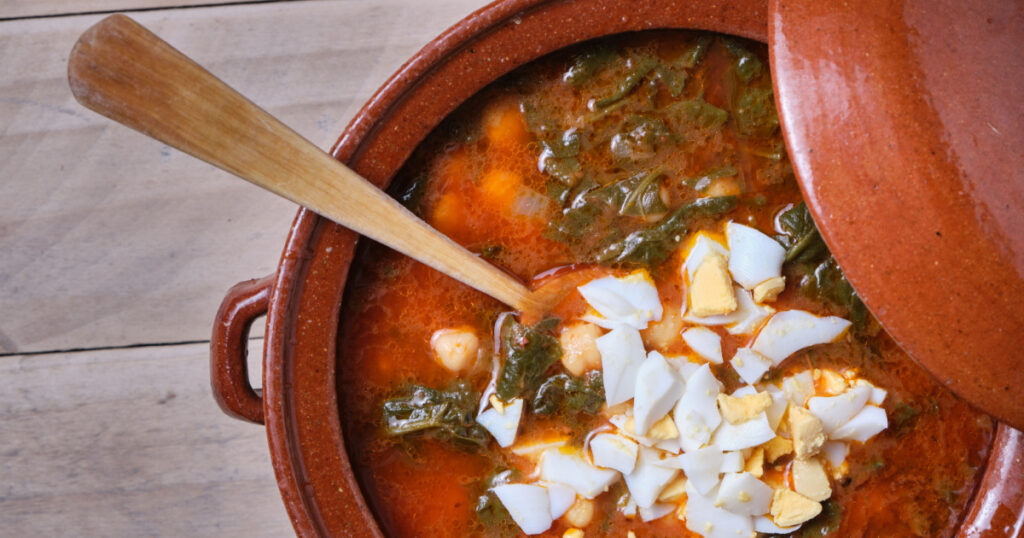
Beyond the traditional hard-boiled eggs, you can experiment with different flavors and seasonings to create a whole new culinary experience. Try adding spices, herbs, or condiments to the boiling water to infuse delightful flavors into the eggs. This simple technique can elevate your hard-boiled eggs to a whole new level.
Fact 11: Hard-boiled eggs can be creatively used in recipes
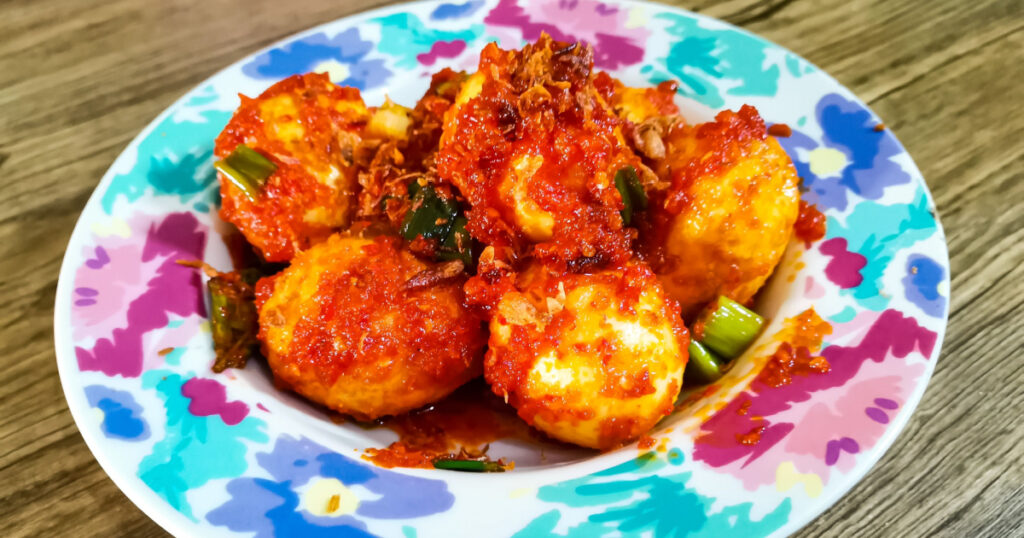
Apart from being enjoyed on their own or in salads, hard-boiled eggs can be used creatively in numerous dishes. They can be stuffed with savory fillings, sliced for garnishments, or even mashed and mixed with other ingredients to create delicious spreads and fillings. The possibilities are endless!
The Bottom Line
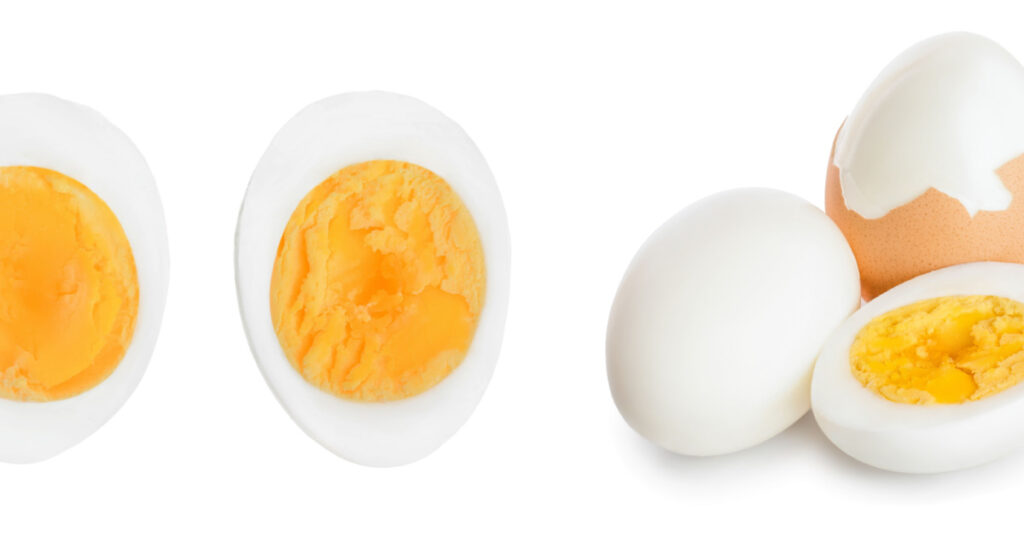
Hard-boiled eggs, with their dense protein content, versatility in cooking, and interesting facts, are a treasure trove of culinary possibilities. From being a favorite among Americans to their impact on heart health and various methods to peel them, hard-boiled eggs have a rich history and a bright future in our kitchens. So, the next time you savor a hard-boiled egg, appreciate it not just for its taste but also for the intriguing facts that make it more than just an ordinary egg.
Read More: 14 foods that will help you look 10 years younger
Sources
- “The Most Popular Egg Style In Every State.” Pantry and Larder. Veronica Fletcher. December 28, 2023.
- “Hard-Boiled Egg Nutrition Facts: Calories, Protein and More.” Healthline. Kaitlyn Berkheiser. February 14, 2023.
- “An egg a day could significantly reduce CVD risk.” NCBI. May- June 2018.
- “EGGS IN GENERAL.” Eggland’s Best
- “How to easily peel a hard-boiled egg.” Yahoo. Maryal Miller Carter. April 14, 2023.
[ad_2]
Source link
